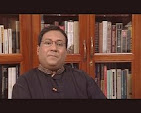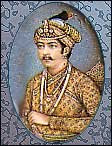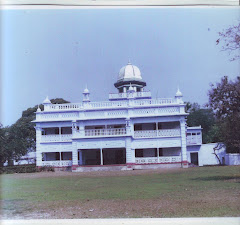
Had I not received a letter from John Kenneth Galbraith dated July 7th 1983, I would not have perhaps chosen a career in Economics. Just the previous summer, the school library of St. Paul’s at Darjeeling acquired a new collection of books that included two books by John Kenneth Galbraith, The Affluent Society (1958) and The New Industrial State (1967). The astringent wit and elegant iconoclasm of John Kenneth Galbraith bewitched me in those years and this triggered a chain of correspondence between Cambridge and Darjeeling. I became a Galbraith aficionado early in life and began to read and collect everything that Galbraith wrote and lectured. I was disillusioned later in graduate school when I found the mainstream of academic Economics neoclassical and Samuelsonian that formed the basis of all higher education in Economics.
John Kenneth Galbraith personified through his life and work what Keynes called “a master economist.” A master economist who, according to Keynes (1933) “possessed a rare combination of gifts...” and could be “a mathematician, historian, statesman and philosopher in some degree.” John lived a complete and fulfilled life. He worked in the Roosevelt and Truman administrations, wrote speeches for Adlai Stevenson, served as ambassador to India during the Kennedy administration, turned down Lyndon B. Johnson's offer of the directorship of the Peace Corps, and as a self-described ''independent operator at the guerrilla level of American politics" played notable roles in the presidential campaigns of Eugene McCarthy and George McGovern. He was also one of the first and most vocal opponents of US involvement in Vietnam. According to John’s neighbor Anne Bernays, ''He was an incredibly smart man. He knew everything, he remembered everything, and he got you on everything. He always had the last word, but in a wonderful way." John was that Harvard economist, who revised each of his books at least five times and was as much a man of letters as a social scientist. John’s style of writing was rigorously burnished and was reminiscent of the 18th century Enlightenment philosophe. He was a thinker as devoted to crafting pellucid prose as shaping public policy. John titled his autobiography A Life in Our Times (1981) and his political career was encapsulated in his Annals of an Abiding Liberal (1979).
John enjoyed a lasting association with the Kennedy family. He was John Kennedy’s tutor at the Winthrop house in Harvard. He was a pillar of the New Frontier, and his presence did much to lend its academic cachet to John Kennedy’s administration. At the 1956 democratic national convention, Kennedy had narrowly lost the vice-presidential nomination, a loss owing to a stand on agricultural price supports John had warned against. Afterward, Kennedy told him, ''I don't want to hear about agriculture from anyone but you, John. And I don't want much to hear about it from you either."
As a reward for his work during the 1960 campaign, President Kennedy sent John to India to understand the mind of the Harrow educated Kashmiri Brahmin elite that was Jawaharlal Nehru. ''The job of an American ambassador," he later explained, ''is to maintain civil communication with the government to which he is accredited and, to the extent that personality allows, to personify the majesty and dignity of the United States. No one should suppose that this is either intellectually or physically taxing." Indeed, John managed to write no fewer than four books while in India: The Scotch (1964), Economic Development (1962), Ambassador's Journal (1969), and the first of his three novels, The McLandress Dimension (1963), which he published under the pseudonym Mark Epernay. He also began work on Indian Painting (1968). ''It is my only writing to which, to my knowledge, no one has ever taken serious exception" wrote John.
During the '50s John published a number of books: American Capitalism (1952) and A Theory of Price Control (1952), The Great Crash (1955), which one reviewer called the ''wittiest book ever written by a professional economist," and The Affluent Society (1958). The latter, with its critique of a consumer-driven economy of excess, made him a celebrity. It was translated into a dozen languages and went on to sell some 1.5 million copies. It also added a new phrase to the language, "the conventional wisdom," which John spent the rest of his life subverting. Two of John’s favorite novelists, Anthony Trollope and Evelyn Waugh, had a more discernible effect on his work than any economist did. Their wit, clarity, and keen eye were qualities he prized highly -- and consistently demonstrated throughout his own work.
In 1967, John published what he considered to be his most important book, The New Industrial State(1967). It, too, was an international bestseller, with its examination of ''the economic, political, and social theory of that part of the economy by now preempted by the large corporations." Along with The Affluent Society (1958), it formed a trilogy completed in 1973 with publication of Economics and the Public Purpose(1973). His worldliness and wide-ranging interests put him at odds with the ever-increasing specialization of contemporary economics. He received his colleagues' highest honor in 1971, being named president of the American Economic Association, but his fondness for the generalizing epigram and distaste for quantification meant his greatest following was among lay readers rather than fellow economists. Even more than John Maynard Keynes, it was Thorstein Veblen (1857-1929), the author of The Theory of the Leisure Class (1899) a classic amalgam of social science and social criticism, who provided John with his model: the economist as social critic. I must admit that I was profoundly influenced and indoctrinated by this model of an economist as a social critic, a reason that led me to James M. Buchanan’s Public Choice and Amartya Sen and Abraham Bergson’s Social Choice as my primary fields of graduate study in Economics.
John once wrote, ''I never imagined that there was any point to being an economist if no one was aware of what you were thinking" (1968). Many years later when I am running for the Mayor of my hometown in a part of the world where President Kennedy once sent John to represent his country, I am reminded of John and his role of an economist as a social critic. A role that I hope to play as well as I learnt from him as a reader and an aficionado.



